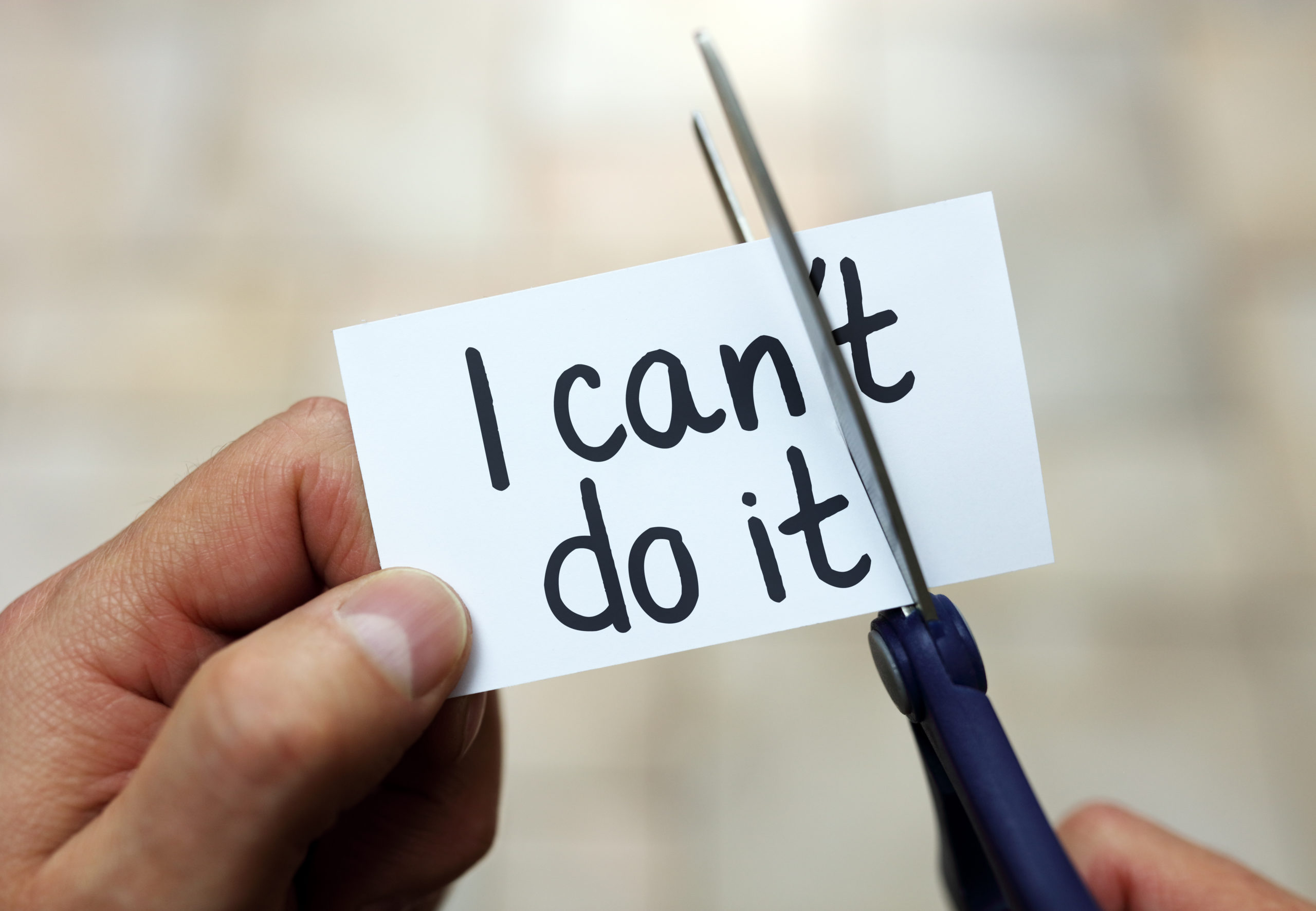
In a world that often emphasises the value of social connections, there’s an important distinction to be made between being alone and feeling lonely.
Many people associate solitude with a sense of isolation or sadness, but the truth is that being alone can be a fulfilling and rejuvenating experience. 😊
In this blog post, I will explore the nuances of being alone versus feeling lonely, understanding the importance of solitude, and embracing the positive aspects of both states.
Let’s get to it. 💕
The Difference Between Being Alone and Feeling Lonely:
Being Alone:
Being alone is a state of physical solitude, where you find yourself without the company of others. It can occur by choice or as a natural consequence of circumstances. Spending time alone provides an opportunity for self-reflection, relaxation, and personal growth.
It allows you to engage in activities that bring you joy, pursue hobbies, or simply enjoy a moment of peace. Being alone can be a deliberate choice, a time to recharge and connect with oneself. 🥰
Feeling Lonely:
Loneliness, on the other hand, is an emotional state that arises from a perceived lack of meaningful connections. It’s possible to feel lonely even in a crowded room if the connections are superficial or unfulfilling.
Loneliness is often characterised by a sense of emptiness, isolation, or a longing for deeper human connections. It’s a complex emotional experience that can impact mental and physical well-being. 😟
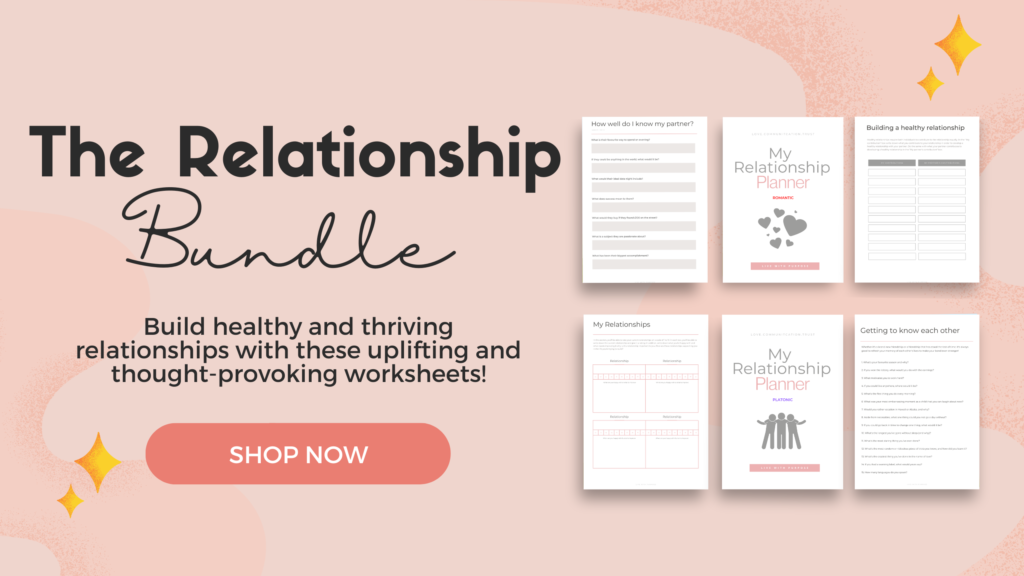
Embracing the Positive Aspects of Being Alone:
1. Self-Discovery:
Being alone provides an opportunity for self-discovery. It allows you to explore your thoughts, feelings, and interests without external influences. Use this time to reflect on your goals, values, and aspirations. Self-discovery is a crucial aspect of personal growth and can lead to a deeper understanding of oneself.
2. Independence:
Embracing solitude fosters independence. When you’re comfortable being alone, you become more self-reliant and less reliant on others for your happiness. This independence can empower you to make decisions based on your own needs and preferences, leading to a more authentic and fulfilling life. 🥰
3. Creativity:
Solitude often sparks creativity. When you’re alone with your thoughts, you have the mental space to generate new ideas, think critically, and engage in creative pursuits (yaay). Many artists, writers, and innovators find inspiration in moments of solitude, leading to the creation of meaningful and impactful work. 🎨
4. Rest and Rejuvenation:
Being alone allows for rest and rejuvenation. In a world filled with constant stimuli, taking time for solitude can be a form of self-care. It provides an opportunity to relax, recharge, and focus on activities that bring you peace and joy, contributing to overall well-being.
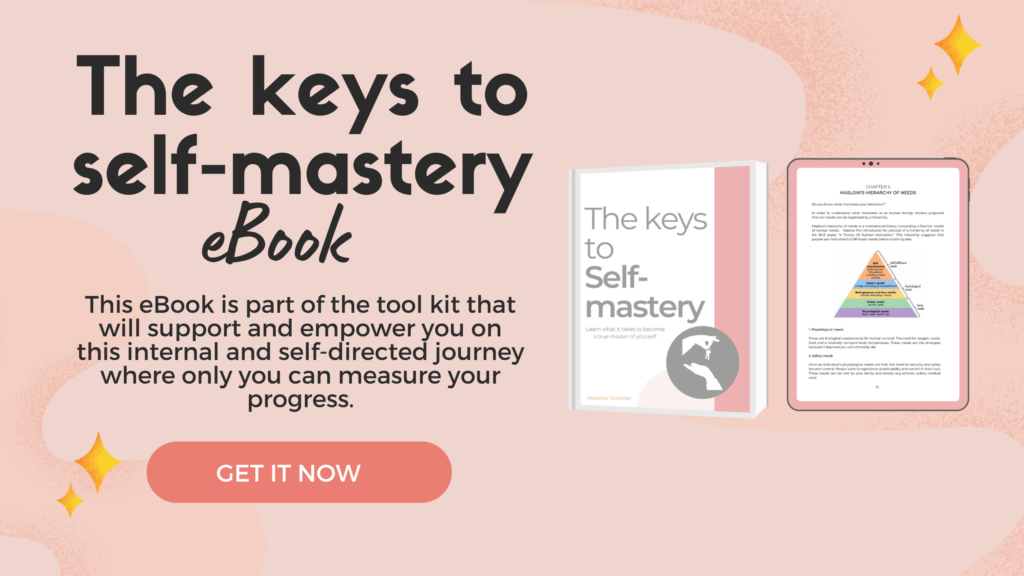
Addressing the Challenges of Feeling Lonely:
1. Cultivating Meaningful Connections:
If loneliness arises from a lack of meaningful connections, focus on cultivating relationships that nourish your soul. Seek out individuals who share your values and interests. Join clubs, organisations, or communities where you can meet like-minded people. Focus on getting yourself out there. Quality connections are often more fulfilling than a large social circle. 🫂
2. Volunteering and Giving Back:
Engaging in volunteer work or contributing to your community can alleviate feelings of loneliness. By helping others, you not only make a positive impact on the world but also connect with individuals who share a common purpose. Volunteering provides a sense of belonging and fulfillment.
3. Seeking Professional Support:
If loneliness becomes a persistent and overwhelming emotion, maybe consider seeking professional support. A therapist or counselor can provide guidance and a safe space to explore the root causes of loneliness. Addressing these issues with professional help can lead to a more fulfilling and connected life. 🫶
Finding Balance:
The key to a fulfilling life lies in finding a balance between being alone and fostering meaningful connections. Embrace solitude as a time for self-discovery, creativity, and rejuvenation. At the same time, actively cultivate relationships that bring joy and fulfillment. Recognise that both states are essential for a well-rounded and satisfying life. 💕
Conclusion
Being alone and feeling lonely are two distinct experiences, each with its own set of opportunities and challenges. Embracing solitude allows for self-discovery, independence, creativity, and rest. However, if loneliness creeps in, it’s crucial to address it by cultivating meaningful connections, volunteering, or seeking professional support. You are not alone. ❤️
Understanding the nuances between being alone and feeling lonely empowers you to navigate both states with intention and purpose. Ultimately, finding a balance between solitude and social connections contributes to a rich and fulfilling life. Embrace the positive aspects of being alone, foster meaningful connections, and savor the journey of self-discovery in this beautiful dance between solitude and companionship.
Pin this post for a reminder 📌 👇

Related Blogs
Things to Say “No” to for you to Live a Happier Life
How to Stop Settling For Less Than You Deserve
How to Become the Best Version of Yourself: A Guide For 20-Somethings
What are you scared of? 🤔
We are born with two innate fears: The fear of falling and the fear of loud noises. Both these fears are an instinct necessary for survival.
So! Let’s get started on how to overcome your fear and live your best life.
Storytime!
I personally have a fear of crossing bridges where I can see what’s under me e.g. passing cars, rivers etc. I believe this relates to the innate fear of falling. As my main thought is “omg what if this bridge collapses”. 😬
This fear used to be so bad that I would purposefully take the longest route to avoid going on a bridge or even worse, not go to the location at all if the only option was to get on a bridge.
As you could imagine having a fear like that is totally annoying. It wasn’t until I went to Spain with my sister that my fear subsided.
One day we decided to go to the beach, and to get there we needed to cross this long, thin bridge above a very busy road.
The beach was just on the opposite end of the bridge, all I had to do was just cross it to get there. However I looked at it and thought “ nope, can’t do it. Too long, too thin, no way”.

To be honest with you I don’t even know if I could call this thing a bridge, it was practically a piece of sheet metal.
Nevertheless, I knew my sister was eager to get to the beach and relax in the sun and I didn’t want to get in the way of her enjoying the holiday. She gave me a pep talk and off I went following behind her on the bridge.
I walked as briskly as the sound of cars driving by and horn honking was making my anxiety go through the roof, my heart was pounding out of my chest and my legs were starting to go numb.
I looked down and to my surprise noticed something which made me scream “ OMG THERE ARE BULLET HOLES IN THIS BRIDGE I WANT TO GET OFF” to which my sister replied “Heather shut up it’s not bullet holes” we then argued back and forth over this rackety bridge regarding how these holes got there which completely distracted me to the fact that I was conquering my fear.
Once I stepped off, I felt extremely proud of myself and realised I can conquer any fear if I just “do it”. Sometimes it does take that helping hand of someone pushing you to help you realise your potential, especially if they’re able to help distract you while you’re doing it! 😂
I was prepared to put my fear of crossing the bridge aside as my fear of disappointing my sister was much greater.

^ No, this is not what the bridge looked like but it might as well have!
Heather’s top tip: Surround yourself with people who will push you to overcome the fears holding you back from where you want to go and what you want to do.
Learned fears – Scared of the unknown
The most common fears we experience that sabotage our hope for success is the fear of failure, poverty and loss of money.
These fears cause us to avoid risk and reject opportunity when it is presented. We often spend years chasing opportunity and get comfortable with the chase, so comfortable that it becomes part of our identity.
When the opportunity is within our grasp we freak out and get scared. 😬
This is because of the potential changes the opportunity may bring. If you don’t deal with uncertainty well you’ll most likely create excuses as to why it’s not the right time for you to pursue the opportunity.
Here are a few techniques and tips to help you overcome your fears so you can become limitless
The law of reversibility
The law of reversibility says that “If you feel a certain way, you will act in a manner consistent with that feeling”.
So even if you don’t feel like it but act in a manner consistent with that feeling, the law of reversibility will create the feeling that is consistent with your actions.
This is one of the greatest breakthroughs in success psychology. You develop the courage you desire by disciplining yourself to repeatedly do what you fear until that fear eventually disappears.

Every opportunity can be undone
When an opportunity scares us it’s usually because we fear we’ll make a mistake that can ultimately mess up your career, your personal work or just your life in general.
Nonetheless, the majority of opportunities that can come your way will not be life or death decisions. 🤷♀️
If an opportunity doesn’t work out, it’s not the end of the world. All it is a minor setback and a learning experience to which you can get back up, dust yourself off and carry on working towards your goal.
Opportunities pursued can just as easily be undone. Yet opportunities avoided are difficult to rediscover.
Is it a fear of failure or a fear of success?
You’re probably thinking “Huh!? Why would I fear success?” but the reality is that success changes our lives more than failure and that thought can be really scary, especially when we’ve spent years becoming comfortable with the current way we live.
To clarify whether it’s a fear of failure or a fear of success you need to know your definitions for both.
Related: QUIZ: What does success mean to you?
Fear of failure often involves self-talk such as: “If I don’t try, I can’t fail” There is safety in standing still, not taking on new challenges or trying new things, all of these things can ultimately lead to “failure”.
Success for someone may be a salary of 500k and someone else may define success as a strong and happy marriage.
What is your definition of success?
What is your definition of failure?

Confront your fears immediately
When you identify fear and discipline yourself to move toward it and confront it, it grows smaller and more manageable.
The natural tendency of many people is to deny that they have a problem caused by fear of some kind. They’re afraid of confronting it which results in major stress, unhappiness and psychosomatic illness.
When you force to tackle your fear head on your self-esteem goes up, your self-respect increases and your sense of personal pride grows. 😁
RELATED: Getting out of your comfort zone mini-course

In Summary…
Fear immobilizes and prevents us from achieving what we desire and what we are capable of. Don’t let fear kill your hustle before you even get started.
Understand your fear and embrace it. Fear exists to keep us safe, it is not inherently bad or good but a tool we can use to make better decisions in life.
These tips are my top ways on how to overcome your fear and get what you want!
What methods have you used successfully to overcome your fears? Let me know in the comments 🙂
Pin this post for a reminder 📌 👇

Related Blogs
The ultimate guide for coping with change
Remember the time you were in school and were afraid of failing a science test? During those uncertain times, your mum would always tell you that if you just believe in yourself no force in the world could stop you from passing your exams!
Now that we have all grown a bit older, we still tend to doubt our abilities. 😔
Self-efficacy can play a crucial role in determining how confident you feel about yourself. So what is self-efficacy and why is it important? If you want to know the answers to these, this article is just for you! 😁
What is Self-Efficacy?
Self-efficacy is an interesting psychological concept. It is defined as an individual’s confidence in their abilities to be successful at any task they take up.
It is a measure of how much a person believes in themselves and how confident they are in overcoming any roadblocks they face in their personal and professional life.

People often tend to confuse self-efficacy with self-confidence, self-motivation, or even self-regulation. However, self-efficacy is an umbrella term that includes all these psychological concepts.
Maybe you already know your long-term life goals, the positive changes we’d like to bring in your life, and your professional goals. Great stuff! However, accomplishing these goals is a whole other kettle of fish.
Having a high level of self-efficacy can help you turn your thoughts into action and accomplish your life goals right away.
What is the Importance of Self-Efficacy in Your Life?
We all have our fears of obstacles and failing in life, whether it’s personal objectives or professionally. That said, setting goals and taking action to overcome these obstacles is the only way to move forward in life. 🤷♀️
Sometimes a goal can seem too intimidating to tackle, even when you feel like you’ve broken it down to the smallest step. This is where your self-efficacy comes into the picture.
It determines how you feel about yourself, how you behave when dealing with an obstacle, and what actions you take to overcome it. Here’s how a strong sense of self-efficacy can help you in life:
👉It helps you not get overwhelmed by your thoughts and feelings by keeping them under control in difficult situations.
👉It helps you to focus better on the academic front, achieve better grades and set higher career goals for yourself. If you have a strong sense of self-efficacy, you can feel more confident about achieving your life goals.
👉When you face any obstacles or failures, self-efficacy empowers you to increase your efforts and get a grip over your situation.
👉Self-efficacy can be a key factor in developing self-confidence and leading a stress-free life.
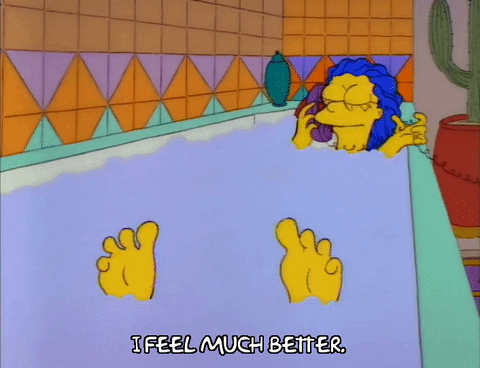
How to Gauge Your Self-Efficacy?
In order to gauge your self-efficacy, you can take a quick survey and ask yourself the following questions:
🤔Are you willing to work hard towards achieving your life goals?
🤔Do you think you can overcome any roadblocks or obstacles that might stop you from achieving your goals?
🤔Do you think you can bounce back stronger after failing at a task?
🤔Do you think that you can keep trying to achieve your goals in the face of adversity?
🤔Do you think you can keep your emotions under control when faced with a challenging situation?
🤔What do you tend to focus on – your failures or your achievements?
🤔Do you believe that you are competent enough to achieve everything you want in life?
If you gave a positive response to the above questions, you have a strong sense of self-efficacy. If not, don’t get disheartened. There are several ways to improve your self-efficacy.
What are the Negative Effects of Low Self-Efficacy?
According to several psychologists across the globe, self-efficacy is a key determinant of your overall health and well-being. People who believe in themselves have a stronger desire to achieve their life goals, a stronger sense of their interests, and the ability to bounce back quickly from setbacks in life.
They view every roadblock as a challenge.💪
On the other hand, a person who isn’t confident about themselves tends to steer clear of any challenges that come their way. They focus on their failures rather than their achievements.
Let’s take a look at how a low level of self-efficacy can affect your mental health and overall well-being.
- People who don’t feel confident about their abilities tend to have a lower success rate in achieving their life goals and realizing their ambitions. It causes one to feel anxious and lonely; it might even lead to depression in extreme cases. 😦
- Low self-efficacy can also lead to indecisiveness and a lower drive. 😟
- It can significantly hamper your ability to perform everyday tasks and concentrate on the task at hand. 😞
- People who spiral into depression due to low self-efficacy or are unable to deal with their failures often tend to resort to alcohol and drug abuse as an escape. 😫
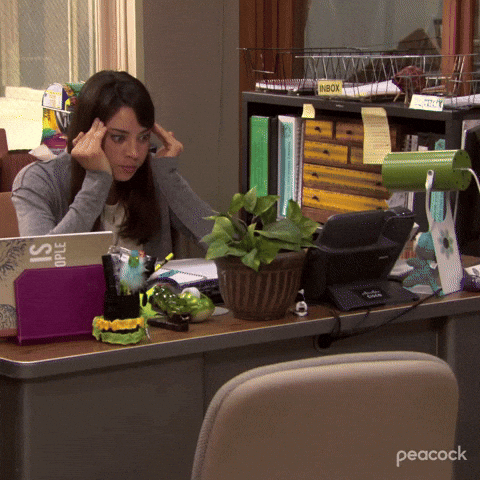
How Can You Develop Self-Efficacy?
If you are determined to bring a positive change in your life by improving your sense of self-efficacy, you can do so by implementing these three strategies. Take a look! 👇
1. Bid Goodbye to Your Comfort Zone
The best thing that you can do for your personal development is to get out of your comfort zone.
Getting out of your comfort zone will allow you to embrace the opportunities life has in store for you.
While it might seem like a daunting task at first, just think about everything you can achieve in your life if you just find the courage to take the first step.
To get out of your comfort zone, you can try to take a demo class of a skill that you always wanted to develop but were unable to. You could go out with your friends and try to meet somebody new. You can even try to go to social support groups and listen to motivational public speakers.
But I personally recommend this course right here 👇😉

2. Set Reasonable Goals
Don’t try to overwhelm yourself by setting unrealistic personal and professional goals. Inability to achieve such goals will only make you feel like a failure and lower your self-esteem. Instead, try to set small and realistic goals that you can manage to achieve easily by believing in yourself.
RELATED: S.M.A.R.T Goal setting worksheet
RELATED: How to set goals and achieve them mini-course
3. Change the Way You See Your Failures
It’s a known fact that failures and obstacles are a part of everyone’s life. There’s no way you can avoid them. Instead of focusing on just your failures, try to look at the bigger picture. Think of your failures constructively and change the way you implement your actions.
4. Pay Heed to Positive Feedback
Paying heed to positive feedback about yourself from your friends and family can help you develop a strong sense of self-efficacy. Also, avoid paying attention to any negative feedback as well. (very much different than constructive feedback) 👈
Listening to something positive about yourself from the people you love and respect can be very encouraging for your soul and make you feel more motivated about achieving your goals.
5. Celebrate Your Achievements
The most effective way to inculcate a strong sense of self-efficacy in yourself is by celebrating your little achievements. Patting yourself on the shoulder for achieving both major and minor milestones in your life is a must.
Failures might undermine your self-efficacy but the feelings of actively trying to achieve your goals is a step towards enhancing your self-efficacy. 😄
The Bottom Line
Self-efficacy will generate adrenaline in you, which will not only push you to work hard and achieve your goals but it will also have a positive impact on your overall well-being. Everyone’s life is filled to the brim with challenges and obstacles. However, only those who are self-efficacious can see what lies beyond such obstacles.
You got this 💪
Pin this post for a reminder 📌 👇

Related Blogs
The power of setting goals and objectives
As claimed by the renowned coach and speaker Tony Robbins, success and happiness can be found by meeting the 6 human needs that are fundamental to human beings.
These six basic, universal needs make us tick and drive all human behaviour.
Combined, they are the force that makes us do the things we do. We all have the same six needs, but everyone ranks these needs differently and the way you rank these needs is the reason you are the way you are as a person. 😊
A lot of our behaviours are based on which of our needs are -or are not- being met. Depending on which of the human needs are foremost in your personality, you could be spending your time consciously or subconsciously trying to meet one or two of these needs.
If you don’t succeed in meeting your needs this could result in negatively impacting your well-being and you will feel unfulfilled.

The key is to develop greater awareness of the six essential human needs and why we do what we do. We can then be able to consider other ways to meet these needs in a more resourceful way and create harmony within our lives.
Knowing which of these six needs is your primary motivator is crucial to finding out which drives you.
It can also help by giving you a better understanding of your triggers which puts you in better standing to learn how to manage your emotions.
The top four needs in the list below shape our personality. We all find ways to meet these needs, whether it’s working hard to meet them, or creating stories in our minds to rationalize them.
The last two (growth and contribution) shape our spiritual needs, these are rare – not everyone meets these.
When all these needs are met, we then truly feel fulfilled.
So let’s take a look at these six essential human needs:
1. Certainty: Assurance you can avoid pain and gain pleasure
The first human need is certainty. This is one of our top human basic needs as you need to feel secure and safe about the future.
It’s the need for basic comfort, the need to avoid pain and stress, it’s the need to feel in control and to know what’s coming next. Our need for certainty is a survival mechanism.
In order to live a life of certainty, your life would need to stay EXACTLY the same, which we all know is practically impossible. 🤨
So, the closest thing to living a life full of certainty is by artificially controlling your environment by changing your expectations or by avoiding new situations and people. This process provides you with the certainty that you will avoid pain or gain pleasure, which then fills the basic human need for certainty.
Also, this is where your real “risk tolerance” comes from!

2. Uncertainty/ variety: The need for the unknown, change, new stimuli
Do you like surprises? If you answered “yes” or maybe a bit more ecstatic like “yes Heather of course I do, who doesn’t!?” I’m sorry to say this, but you’re kidding yourself. 😬
You like the surprises that you WANT.
The surprises you don’t want = PROBLEMS.
However, when these problems arise you need to be able to deal with them appropriately. It’s important to understand the beauty of uncertainty, those that put this need at the top of their basic needs usually take it to an extreme.
They engage in frequent job or relationship changes for the sake of variety. Some even take unnecessary risks just to get that burst of adrenaline they crave.
If uncertainty is one of your top six needs you will be unafraid of taking risks and enjoy the world of the unknown.
3. Significance: Feeling unique, important or needed
We all want to feel needed, important and special. So how do we get significance.
If significance is among your top six needs then part of that need includes receiving recognition. This may translate into the want to be seen and heard – in short you want to be noticed. You measure significance by what you believe makes you unique. 💁♀️

Whether it’s earning billions of pounds, having over 100 tattoos or having the most problems in your life.
A lot of big brands use the power of significance by my making their consumers feel special.
They know that people will pay for anything that they believe is “the best” or anything that makes them stand out from the crowd.
4. Love/connection: A strong feeling of closeness or union with something or someone
When we love completely we feel alive. When we lose love the pain is so great that we settle for connection, the crumbs of love. 💔
If connection/love is your top human need, you’re constantly seeking out a close relationship with someone or something. This can lead to some amazing fulfilling relationships, but it can also cause you to sacrifice self-care (a big no-no) in order to take care of others. 🙅♀️
You can get that sense of connection/love through intimacy, friendship, walking through nature, or prayer.
( If you’re thinking of your pet then yes, they count too!) 🐕
5. Growth: An expansion of capacity, capability or understanding
If you’re not growing, you’re dying.
If your relationship isn’t growing, if your business isn’t growing, if you’re career isn’t growing, if you’re not growing, it doesn’t matter what you have externally (how many friends you have, how much money you have, how many people love you) you will never experience real fulfillment.
Those whose top need is growth are always striving to be better and learn more. They are usually better at their jobs but tend to move on quicker than others once they’ve reached the full potential of their position.
Though their constant striving for betterment guarantees they will never be bored they’re more likely to be perfectionists and neglect the relaxation needed. 😬

6. Contribution: A sense of service and focus on helping, giving to and supporting others
You may have heard Tony Robbins say this before, “The secret to living is giving”. Those who experience contribution as their top need knows this better than anyone.
If you have a need to contribute you are more likely to make a big difference to your community and the people around you. 👨👩👧
What’s the first thing you do when you get good or exciting news? You call somebody you love to share it with. Sharing enhances everything you experience.
Life is about creating meaning and meaning does not come from what you get it comes from what you give. Essentially, it’s not what you get that will make you happy long term, but rather who you become and what you contribute will.
By better understanding which of the six essential human needs is your driving force, you can set goals for yourself and implement positive behaviours to help you achieve those goals.
These are the 6 human needs that influence your behaviour.
What is your number one human need?
Pin this post for a reminder 📌 👇
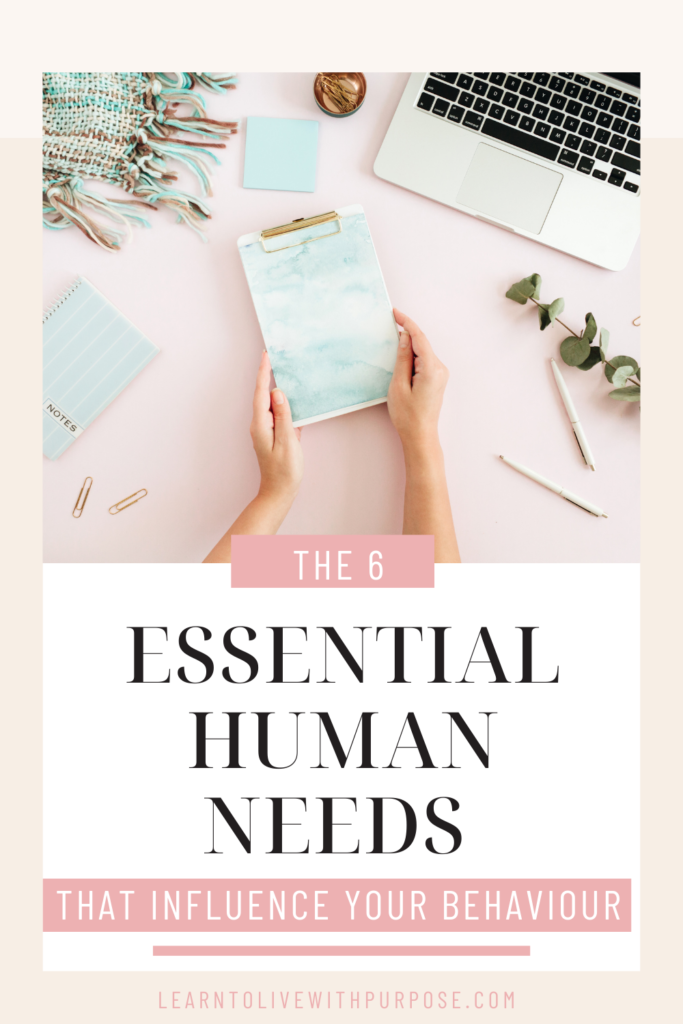
Related Blogs
How to raise your standards and live your best life
Most of us understand that by comparing ourselves to others no good can come from it. Yet whether we’re comparing physical features, accomplishments or paychecks we still do it all the same. 🙃
Comparing yourself to others is one of the easiest ways to feel bad about yourself. It makes you feel jealous, inadequate and not important.
According to social comparison theory, we do this in an attempt to make an accurate evaluation of ourselves, but at what cost? 😮💨
Sometimes comparison can be more generic like wishing you were taller, but more often than not it’s about something the other person is capable of doing and wondering why you’re not achieving the same results as they are even though your stalk level is on 100. 😂

Maybe Rachel has more subscribers on her YouTube channel than you and maybe Rebekah can afford to buy more of the latest fashion trends than you can. Comparison can sometimes be motivating but more than not it can be destructive.
There is one thing you will always be better at than anyone else in the world and that’s being YOU.
This is the only way you can truly win.
We are biologically programmed to put a greater emphasis on the negative (AKA Negative bias).
Therefore, comparing yourSELF to somebody else’s SELF (which is your overall “worth” as a human being – to others) will only end badly.
Now! let’s look at why you should stop comparing yourself to others and how you can live your best life. 💁♀️
Harnessing the power of comparison
In order to harness the power of comparison you need to be able to constrain the negatives and make use of the positives – such that it propels your forward rather than holding you back.
Well… how do I do that?
You can do this by not comparing yourself to others in counterproductive ways that open the door to negative thoughts.
If someone is where you want to be, whether it’s your career goal, business goal, monetary goal etc. You must look at what they’re doing with an honest eye, with the only goal of learning from the comparison and using what you learn to help raise your standards to be in a better standing of achieving your goals.
Comparing the uncut reality of your life to the highly edited version of someone else’s life is going to make anyone feel like crap. Who needs this? Definitely not you. 🙅♀️
Instead of being motivated, attending network events or making headway on a project, you’re in your room curled up under your blanket wondering why your life isn’t going as well as someone else’s.
The majority of the time it’s usually people we don’t even know! This creates an instant loss of momentum all because you allowed yourself to fall into this common trap of negative comparison.

No one has a perfect life
Everyone experiences problems and challenges in their life. No one is exempt from this. Especially through social media, it’s easy to for people to pretend they lead an amazing life with no downsides – know that this isn’t true.
What people present to the outside world is usually an edited version of their reality. 🤷♀️
When someone asks you “How are you doing?” you’re unlikely to say “I’m about to lose my mind, my boyfriend is driving me absolutely crazy and I feel like a failure”. Instead you’d probably hold your tongue and say “everything’s fine, how are you?”
People are less likely to reveal their negative emotions than their positive emotions.
This could be for a number of reasons such as:
👉 You don’t want people to pry in your private life
👉 You don’t feel close enough to the person who’s asking you how you’re doing to give an honest answer
👉 You don’t want to burden the person with your problems
👉 You don’t think the person will understand your situation
👉 You feel ashamed of the situation that you’re in
👉 You don’t like asking for help
You’ll always lose
If comparing is how you value your worth, you will always lose, and I guarantee whoever is reading this is not a loser.
What makes life amazing and fascinating is learning from the hard work and talents of others. Instead of trying to be as good or better than others focus your energy on being the very best version of yourself.
Next time you catch yourself using someone else’s life as a benchmark of your own self-worth remind yourself of how ineffective and destructive this thought process is.
Instead redirect your energy and attention to your own goals and what is required to achieve them.
How to break the habit of comparing yourself to others
Gratitude
If you concentrate on what you don’t have you will never have enough. Whenever you find yourself looking at what people have, remind yourself of everything you should be grateful for in your life.
For me, that means appreciating the roof over my head, the clean running water I get to drink, my fabulous friends and family and many others.
There are so many things that you can be grateful for if you really sit down and think about it. So shift your focus from what you don’t have, to what you do have.

Be aware
Most of the time social comparisons are done without you even realising you’re doing it.
Make these thoughts conscious by bringing these thoughts to the forefront of your consciousness by being on the lookout for these types of thoughts.
Once you’ve trained your mind to be consciously aware of when you start negative social comparison allow yourself to “pause”.
Don’t allow yourself to feel bad, just acknowledge the thought and gently shift focus.
Focus on your own life’s journey
Life is a journey, not a competition. There’s no leader board of “Who has the best life”. We are all on a journey to live a life of purpose full of fulfillment, self-discipline and gratitude.
That journey has nothing to do with what other people are doing or what they have. What you have and where you want to go is all you need to worry about.

Compare yourself with you
If you need to compare yourself with someone, make that person be yourself.
How can you improve yourself? How can you be more loving towards other people? What can you do to make today better than yesterday?
Comparing your previous self with your current self can help how show you the growth you have made, and if you haven’t made any growth you are now consciously aware that changes need to be made. Allowing you to become a better version of yourself.
To summarise...
Avoid letting comparison breed envy, self-doubt and other negative energy into your life. Use the power of comparative thinking to your advantage and turn it into positive energy and critical thinking about the fulfillment of your own life and what you need to do to find and live your purpose in life.
I hope you enjoyed this post on how to stop comparing yourself to others!
Pin this post for a reminder 📌 👇

Related Blogs
The ultimate guide for coping with change
How often do you forget to practice self-care?
You’ve got a list as long as your arm of all the things you have to do and you find work extremely overwhelming. To make time for everything you take shorter breaks, skip meals and have minimal to no social interactions. Leaving you stressed and overwhelmed by your countless responsibilities.
We often don’t think twice before putting self-care on the back burner but then we feel the mighty force of physical and emotional exhaustion, AKA BURNOUT. 😫
Self-care is crucial for Your physical, emotional and mental wellbeing. So, let’s look at some simple ways to practice self-care.
What is Self-care?
Self-Care is a broad term that essentially involves just about anything you do that makes you feel good about yourself externally and internally.
However, it’s important to know that not everything that feels good is self-care. Such as excessively eating unhealthy food, drugs, smoking and drinking excessive amounts of alcohol, which can sometimes be used as coping mechanisms.

These are self-destructive activities that create challenging emotions and are really a temporary relief of happiness.
When practiced correctly self-care has long-term benefits for both the mind and the body.
Self-care is just a few basic habits that are important for you to function. We all know that working smart + hard is crucial for success, but if you’re laying in a hospital bed or sitting in a doctor’s office because you’re burnt out and have ruined your health what is the point of it all? 🤨
Self-care isn’t a reward you give yourself after completing a mammoth task nor should you classify it as just painting your toenails once every blue moon.
Include some forms of self-care in your daily routine and include the ones that could take some planning (vacation/ spa weekend etc) in your personal monthly goals.
Emotional Self-Care
Self-care isn’t just about doing something physical. Learning to handle stress, anxiety and sadness can be helped by taking time away to process your feelings.
A lot of our emotions are to do with situations, experiences and memories that happened in the past that are being projected into the present.
We should still gently lean toward them (instead of repressing and suppressing it) so that we can allow them to come to the surface and deal with it appropriately.

What exactly are you feeling? What made you feel this way? What steps can you take right now to make yourself feel better?
Here are 10 ways to start incorporating emotional self-care into your daily routine starting today:
1. Learn to identify what triggers your emotions, then identify the different ways to consciously respond to those triggers without causing harm to yourself or others.
2. Call on others to help you when you feel overwhelmed. Whether that means offloading some of the tasks you’ve got to do or for just a stroll to a café to talk about your feelings.
3. Set boundaries for yourself and for others and stick to them.
4. Allow yourself to make mistakes.
5. Accept compliments without push back, just say a simple “Thank you”.
6. Be more aware of how you speak to yourself, your inner critic is not the true wisdom within you.
7. Give yourself three compliments each morning. Start your day off by working towards a positive self-image.
8. Identify activities that you enjoy and schedule them into your day.
9. Give yourself permission to feel your emotions, especially if they’re painful.
10. Learn to say No and serve yourself first.
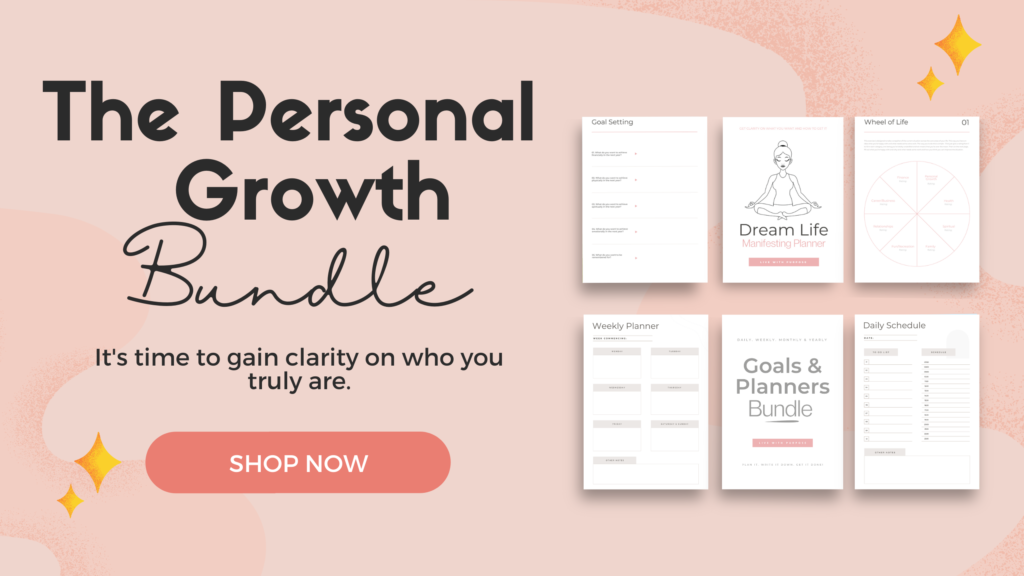
Simple ways to practice self-care for your mind, body and soul
This post contains affiliate links. Read my full disclosure policy here.
I can’t stress enough how important it is that your self-care routine is specifically tailored to you and you alone. The things that rejuvenate you are going to be unique to your preferences and circumstances.
This means that you will have to go on your own journey of self-discovery to understand what self-care means to you and how you can get the most out of it.
Doing this can be one of the most rewarding, exciting and enjoyable experiences of your life, as you get to learn more about yourself as an individual and the healthy coping mechanisms needed to help you function through difficult times.
Don’t know where to start? Here are a few suggestions for self-care that addresses your mind, body and soul.
Mind
🧠 Keep a daily journal and offset your feelings
🧠 Schedule days where you do nothing at all and relax
🧠 Practice meditation
🧠 Find your creative outlet
🧠 Encourage yourself to laugh at old memories or funny videos
Body
💪 Exercise
💪 Get enough sleep. Adults need between 7-9 hours of sleep a night to function at their best.
💪 Eat healthily
💪 Wear an outfit that makes you feel amazing
💪 Get a massage or other spa treatment
Soul
🧘🏽♀️Let go of the negative people around you
🧘🏽♀️ Take yourself out on a date (Splurge a little)
🧘🏽♀️ Make time for the things that bring you joy daily
🧘🏽♀️ Practice self-reflection
🧘🏽♀️ Make time for therapeutic activities (E.g. getting into nature, listening to music)
“Take care of your body, it’s the only place you have to live”
Jim Rohn
If you incorporate any of the self-care tips mentioned in this blog into your daily routine, you are definitely on the right track to improving your life.
You’ll feel more connected to yourself and the world around you. You’ll find yourself taking pleasure in your small wins in life and nothing will seem as difficult as it was before.
Thanks for reading my simple ways to practice self-care! What self-care habits would you like to form?
Pin this post for a reminder 📌 👇
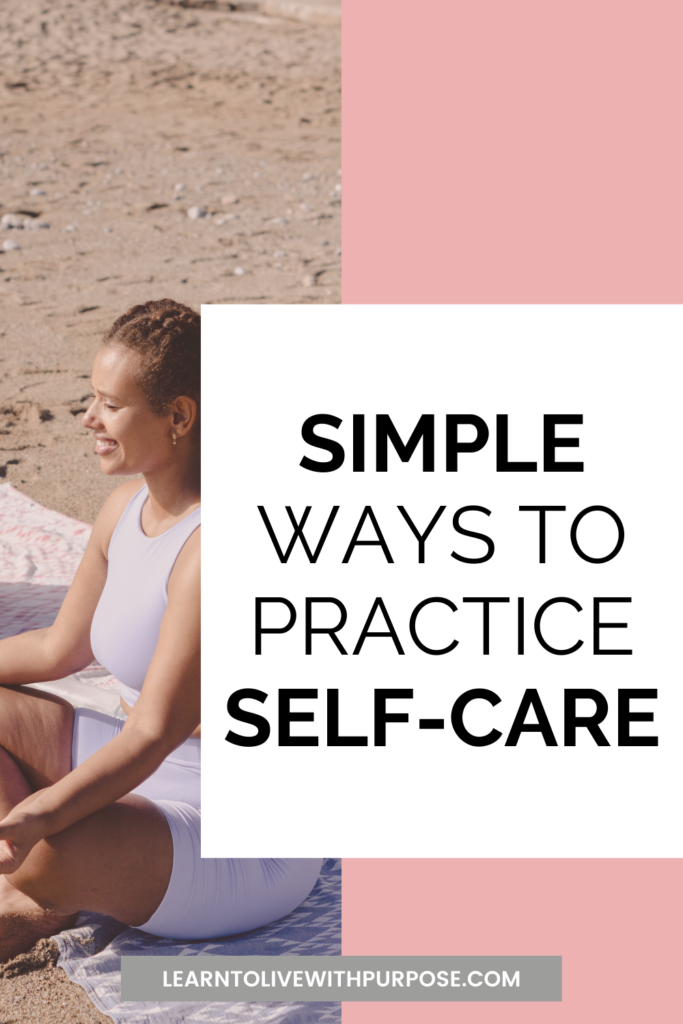
Related Blogs
Things to say “No” to for you to live a happier life
When you research ways to improve your productivity 9 times out of 10 it’s related to your work life, strapped to a desk and how to get the most out of the 8 hours you’re there…
but what about your personal life? 🙃
Staying productive can be a mentally hard task as life is full of constant distractions. Just the other day I was writing a blog post called The top daily habits of successful people and I heard the beautiful words “ THE PIZZA IS HERE! 🍕” coming from downstairs and I got up off my chair like my life depended on it and ran.

I ended up not doing anything for the next two hours due to the constant distractions from leaving my desk which messed up my plan for the day.😑
Did that pizza taste amazing? Of course it did. Was it worth messing up my schedule? Probably not. Don’t get me wrong, I’m not saying don’t eat or exclude yourself from everything, just have a plan in place to be as proficient as possible.
Here are my top 10 ways to help you improve your productivity to stay on track and get the best out of your day.
1. Introduce “the 5-second rule” into your life
The 5-second rule was created by Mel Robbins who said “ If you have an instinct to act on a goal, you must physically move within 5 seconds or your brain will kill it”
The moment you feel the instinct to act on a goal or a commitment use the rule. She says “ When you feel yourself hesitate before doing something that you know you should do count 5-4-3-2-1 GO and move towards the action.
Who has ever laid in bed and said that they’re going to get up in the next 2 minutes but 20 minutes go by and you’re still in the same position scrolling through your phone? (I’m going to guess that you’re shifting your eyes right about now) 👀
Whenever I find it hard to get out of bed I use this 5-second rule and it has never failed me, so I urge you to try it whenever you need that little extra boost to get up and go do what needs to be done.
2. Minimize interruptions
You go to sit down at your desk to start your daily tasks and your phone rings, you take a quick glance to see who it is but you’re determined to stay focused so you make it ring out.
You put your headphones on to help keep you focused but all you hear is your stomach grumbling and the pings from the notifications on your phone and laptop.
You finally give in to the temptations and get distracted and put the majority of the things you were going to do that day till the next.
Then you feel like crap and can’t find the motivation anymore. 🤷♀️
This is not the way to go. ❌
The best way to minimize interruptions is to take some proactive steps to avoid them.
Here are a few examples:
👉 Close the door while you’re working.
👉 Schedule in beaks
👉 Tell people that you’re busy and only to disturb you if there’s an emergency.
👉 Turn your phone off and give it to someone to hide it from you until you are done.
👉 Get rid of the clutter around your space.

3. Take regular breaks
The rejuvenation you feel after taking a break enables you to complete your tasks more accurately, leading to fewer errors and making you feel more refreshed.
There are good breaks and bad breaks. Good breaks (every 60-90 minutes, however, this is debatable depending on what you’re doing): reduce mental fatigue, boost brain function and help us stay focused for longer periods of time. 😌
Taking excessive breaks (also known as bad breaks) makes you lose momentum as it will take more than twice as long to accomplish anything by dragging out the day with unnecessary breaks.
4. Prioritize your tasks ahead of time
It’s always best to plan your day the day before so that you can better manage your time from the start of the day till the end Instead of spending time in the morning thinking about everything you’ve got to do and feeling overwhelmed.
Figure out your most important task that NEEDS to get done and write out 2-3 sub-tasks that can help you get ahead.
Need some help with prioritising your day? Check out our Goals & Planners printable bundle to help keep you productive.
Prioritising allows you to identify your most important tasks which enables you to give those tasks more of your attention, energy and time.
Prioritised work is productive work!

5. Get enough sleep
Sleep plays an important role in your physical health and is important for various aspects of brain function.
Having a good amount of sleep has been shown to improve problem-solving skills and enhance memory function, however, a poor amount of sleep has been shown to impair brain function.
The first barrier to productivity is insufficient sleep. 😴
Waking up to no energy makes you react slower and have little to no concentration. (you’re basically a walking zombie).
Sleep deprivation takes its toll on us physically, mentally and emotionally. The amount of sleep you need varies between ages but the average sleep you need as an adult is between 7-9 hours a night. 🛌
6. Learn to say NO
One of the biggest problems people find with being productive is getting interrupted by other people with their requests.
“Hey, can you read over this article for me today?”
“Hey, can you walk my dog for me? I’m a bit busy”
“Can you come over and help me revise?”
Learning to say no can be difficult for quite a few of us, especially if you have a nurturing and easy-going personality and always want to people please.
One of the difficulties of saying “No” is knowing how to say it politely without offending the other person.
Here are a few tips on how to say No:
👉Keep your response simple (be firm but direct)
👉Ask for more time before committing to the request.
👉Provide an alternative.
👉Compliment them for asking you but let them know it’s not for you.
Related: Things to say No to for you to live a happier life
Heather’s top tip: Remember, you don’t have to justify your No. Resist the temptation of having to explain why you don’t want to do something.
Your time is your greatest asset. Don’t waste it trying to people please and spend it doing more of what you love.

7. Prioritise your most urgent work first
Similar to tip number 4 which was to prioritise your work ahead of time. It’s even more important to follow through on what you wrote down! 😂
First, work out which tasks are urgent and which tasks are important.
Urgent tasks are things you need to deal with right away, such as submitting a paper first thing in the morning before the deadline. While important tasks are ones that contribute to your long-term goals and values.
How you start your day sets the tone for the rest of it. So, tackling your urgent tasks and then your important tasks out the way first thing gives you the energy and inspiration to keep moving forward. 💪
8. Organise your work environment
By keeping your workspace organized you save time by not looking for things you need which can hinder efficiency.
I dread to remember the countless times I used to spend looking for pens only to realise they were under a mountain of folders and books! 🙄
An organized workspace encourages you to be productive, reduces work-related stress and you’ll know what you have and what you don’t have before you start work.
When you establish an efficient workplace, you establish structure.

9. Stop Multitasking
Multi-tasking greatly reduces your efficiency. We millennials are known for being able to juggle a million things at once from being able to switch our attention from one technology to another.
The more tasks you have, the more mistakes you’re likely to make. According to Standford research, multitaskers are terrible at filtering out irrelevant information, so you’re doing a lot of work but producing little results.
Identify your most important tasks to get done for the day and then simply work on them one at a time.
Even though it may seem like multitasking is saving you time, that’s not usually the case. This is because you’re not giving each task the time and attention it needs which can lead to sloppy work being re-done or edited. 😬
✨ To do your best work, single task! ✨

10. Move around
Have you ever tried to stop your eyes from closing, your head from dropping to the side and ultimately falling off your chair? This is a common occurrence, especially with mundane tasks which we all have to do now and then.
After every 60 minutes of work move around for 15 minutes. What you do in those 15 minutes is up to you. Whether you want to do some push-ups, run up and down the stairs or just simply walk to the fridge and get a snack. 🍇
Sitting down for long periods of time has a negative effect on your health. Your body adapts to the reduced physical demand and slows down its metabolism.
When your metabolism slows down you burn fewer calories and boost the chance that extra energy will be stored as fat. This is why it’s important to have breaks but to also move around in those breaks. 🏃♀️
These are my top 10 ways to help you improve your productivity to get successful results in whatever tasks and goals you want to accomplish.
What habits do you have that keep you productive? Let me know in the comments!
Pin this post for a reminder 📌 👇

Related Blogs
The power of setting goals and objectives
Do you ever wonder what it takes to achieve success? Many successful people share similar daily habits and routines that are integral to their success.
Having a daily routine can make us feel more in control of our lives and allows us to make time for the things that really important. People who tend to “wing” their day because they have no schedule to adhere to usually feel stressed, overwhelmed and uneasy.
No two people are the same and the habits of successful people are a mixed bag but there are some consistencies across the board and it’s those habits that are going to help you live a successful and fulfilled life.
Packing your day with these 10 daily habits will help you be more productive, feel more in control and put you on the right track on living your version of success.
“We are what we repeatedly do”
Now let’s get into the top 10 daily habits of successful people. 😊
This post contains affiliate links. Read my full disclosure policy here.
1. They wake up early
Waking up early gives you more time to work on yourself and your goals. When you’re picking the right time to wake up in the morning you have to factor in your current activities in both your personal life and professional life E.g. if you’re a constant flyer who is always jet-lagged, you’re going to find it extremely hard to consistently wake up at the same early hour every day. 😧
In order to wake up ready to go and take on the day it takes more than just setting an alarm and praying that your finger isn’t going to press the snooze button.
When you wake up every day at the same time your body becomes conditioned to that time and regulates your sleep patterns accordingly. Your body will actually start waking up before your alarm sounds off!
Here’s a couple of ideas to think about in order to make waking up earlier that little bit easier:
👉 Don’t make a drastic change in time at the beginning
If you usually wake up at 10am and you want to start waking up at 4:45am trying to do that straight away instead of cutting back gradually is setting yourself up for failure. Start slowly by putting your alarm 15-30 minutes earlier for a couple of days until you reach your goal time.

👉 Put your alarm clock far away from you
By far away I don’t mean out the room where you can’t hear it 😂 just put it far enough where you have to walk in order to turn it off, and if you share your bed with someone you could be more likely to run or walk briskly which is even better at keeping you awake. Once you’re up, stay up!
👉 Go to bed earlier
If you’re used to going bed late then you have to break that habit by entering a “wind-down” routine even when you don’t feel tired. Try reading, yoga or meditating to get you in a calm and relaxing state. Don’t forget that your general physical fitness greatly impacts your sleeping habits.
Tom Corley an Accountant and Financial Planner surveyed 233 wealthy individuals, mostly self-made millionaires about their daily habits.
Nearly 50% of the self-made millionaires in Corley’s research got out of bed at least 3 hours before their workday actually started. Many of them used this extra time to work on their own personal projects or exercise.
There is no better feeling than knowing everything you need to do for the day is already done because you accomplished everything you needed to do in those extra hours in the morning.
2. They plan their day
The first step of planning your day is to clearly define what you want to get out of it.
It’s best to plan your day the night before (preferably part of your evening routine) so you wake up knowing exactly what you have to do without any faff!
Nothing worse than waking up and going about your day to realise you haven’t done anything that you told yourself you would do.
Get organised!
Get yourself a planner and WRITE STUFF DOWN. Your brain has no interest in trying to remember everything you said over the past 24 hours. Your success is dependent on what you manage to get done day in and day out.
Imagine what you could achieve if you plan your day with only high leverage activities with no time-wasting whatsoever.
If you actually follow through with your daily plans not only will you hit your goals in a timely manner, you’ll achieve your version of success much faster.
RELATED: Ready to start planning out your day properly? Then check out the Goals & Planners Printable Bundle
3. They eat healthily and exercise
How many times has the thought “I’ll do it tomorrow” crossed your mind when it comes to eating healthy and exercising?
Probably more than a 100 times right? 😂
Having healthy habits such as eating healthily and exercising help your overall wellbeing and make you look and feel good.
These habits are hard to develop without changing your mindset first, but if you’re willing to make sacrifices to better your health the impact will be significant regardless of your age or physical ability.

4. They focus on high-leverage activities
High-leverage activities get you the results you need more effectively (less expenditure of time, money or energy).
It doesn’t matter how productive you think you are if you’re not producing results. Don’t waste your time it’s your most valuable asset.
Focusing on the activities in your day that produce the most valuable results will set you up for success.
Staying focused isn’t something that comes naturally to a lot of us, it requires a lot of willpower that must be practiced.
If you lack the discipline to control your focus eventually distractions will consume your precious time.
This point definitely had to be in my list of daily habits for successful people because you can be the most time-efficient, organised person in the world but if you’re not focusing on the right activities that are going to get you closer to your goals, you’re going to suffer.
Progression = Happiness ❤️
RELATED: Learn what your high-leverage activities are by gaining clarity on what you want out of your life by using our PERSONAL GROWTH BUNDLE
5. They surround themselves with positive people
Surrounding yourself with positive people with positive outlooks will create a better influence in your life. Think about the people who you spend the most time with and write down their qualities.
Are they lighting your fire or dowsing your flame? Think about how you feel when you are around them.
🤔 Do they support you and help you reach your goals?
🤔 Do they make you feel full of life when you’re with them?
🤔 Can you turn to them when you feel down?
🤔 Do you feel happy when you see their name pop up on your phone?
If you’re able to respond yes to the above questions, you’re probably surrounded by the people you need to be.
6. They Invest in self-care
It’s easy to push aside self-care in our busy lives or not make it a high priority. Self-care is any action or behaviour that individuals take for themselves to protect, maintain and improve their health and wellbeing.
Taking care of yourself daily is essential, it allows you to become the best version of yourself and therefore be better for the people around you. Here’s a list of daily self-care activities to consider for optimal performance:
✨ Exercise/Yoga
✨ Develop Morning, Afternoon & Evening routines
✨ Make sure you get enough sleep
✨ De-clutter
✨ Have a pamper day
✨ Laugh often
✨ Express gratitude
✨ Meditate

7. They never stop reading
You should never stop gaining knowledge, everything you read fills your head with new bits of information that can make you better equipped to tackle challenges.
Reading also improves your focus and concentration. The average person in a 5-minute time span will divide their time between texting, checking emails, scrolling through social media and interacting with people around them. 🤯
This lack of concentration causes stress levels to rise and definitely lowers your productivity. However, submerging yourself into a great book shuts off the outside world, only you and the book exists. Bliss. 😌
Heather’s Top Tip: You can’t remain at the same level of knowledge you have right now and expect your life to elevate to the next stage. Immerse yourself in books that are going to help you grow in the areas of your life that you wish to improve.
8. They look at their goals
Vividly describing your goals in written form is strongly associated with goal success.
Look at your goals every day, they are an important part of your life. Reminding yourself of your daily goals is an integral part of any successful routine because it allows us to analyse where we stand on a day-to-day basis.
Long-term goals are reinforced by our daily goals and milestones, which push us closer to our dreams. Take your time to reflect and adjust your daily goals accordingly to make sure that you’re still on track.
Get those goals down!

9. They laugh Often
Inevitably things are going to go wrong in life that there’s nothing you can do about. It’s your choice whether you dwell in misery or find the humour/positivity in situations.
Learn to laugh at yourself and not take things too seriously. 😂
The positive feeling you get after laughing remains with you even after the laughter subsides, and don’t forget that laughter is 100% contagious, just hearing someone laugh (especially if it’s a really weird laugh) readies your brain to smile and join in on the fun.
Yes, take things seriously when they need to be serious, but don’t miss out on the tiny joys in life. You’ll regret it.
10. They exercise positive self-talk
Every day is a fresh start, and everyday you should start off with a self-talk to remind yourself to “boss” the day.
Self-talk in the most powerful form of communication as it can either empower you or defeat you internally.
What you say to yourself determines how you feel about yourself. Imagine looking at yourself in the mirror repeatedly saying positive things about yourself and positive thoughts for the day.
You won’t be able to help but smile or even possibly laugh which I’m definitely guilty of (whenever I smile to myself I always end up laughing for some odd reason).
You’ll feel a sense of empowerment and confidence that you’re ready to take on the world, and that’s because you can. 💪
I really hope you enjoyed reading these 10 daily habits of successful people! Let me know in the comments which ones you do. (I’m very intrigued)
Pin this post for a reminder 📌 👇

Related Blogs
How to find and live your purpose in life
Have you ever said Yes to something you ever wanted to say No to?
We believe that we always have to say yes to opportunities that come our way. We fear that saying no will lead us to miss out on new experiences, money and fun. However, saying yes is not always a good use of your time.
When you ask someone how they are 95% of the time they will answer with some version of “busy” whether it’s “It’s so hectic right now” or “I’ve been crazy busy” being busy has subsequently become a badge of honour. It implies we are important and in demand, but if you really are too busy all the time then you’re most likely not saying No enough.
We say yes in our personal lives all the time. When a friend asks us to go out while we still have other things to do, we say yes. When a family member asks for a favour that will cause obstruction to our day, we say yes.
Many of us struggle to say no because of the fear of rejection or the uncertainty of what the other person may think or say.
You would rather upset yourself than deal with the repercussions of saying No.
Did that sentence hit a nerve? If it did keep reading.

We can get so used to saying yes and pleasing others that we don’t even know what we want. If your life is tightly packed with other people’s requests that you don’t have the time for, it’s time to make a change.
Embrace the power of “No” so you can truly live out your full potential. Here is a list of things to say “No” to so that you can live a happier life!
1. People picking your brain constantly
I’m definitely pro-community and collaboration but when you make yourself too available, people are more likely to take advantage of you. Of course, you should help people and not be overly competitive, but this should be done in moderation.
Think about all the times you weren’t able to get on with any of your tasks because you kept helping other people with theirs. Make a conscious decision to make yourself a priority.
To help people out without having to sacrifice a lot of your time is to refer other people of value to the people who like to pick your brain over specific topics.
You can also see this as a business opportunity by getting paid for your knowledge. Whether it’s setting up a membership program or offering 1-1 services.
2. Getting upset over things you cannot control
There are things in life that are inevitably out of your control. It is your choice to dwell in the fact that you cannot control what is happening – whether it’s about the government, the economy, or even the weather. You have the power to control your state. If you’re upset, you have to power to take yourself out of that state even if you don’t feel like it.
This isn’t about giving up or faking it till you make it, it’s about knowing you’re going to get through whatever comes your way.
Giving in to worry or the illusion that you can control the outcome can only result in stress and is a waste of your valuable time.
Say “No” to the belief that you can be in complete control of everything in your life. Say “No” to the undue stress that comes from trying to change outcomes that are not up to you. You’ll definitely save yourself a lot of anguish.
3. Doing things that don’t get you to where you want to be
Before accepting opportunities that come your way ask yourself “is this going to put me a step further in becoming who I want to become?”
There are a lot of mentoring opportunities, career developments, collaboration opportunities and many more potential lists of activities and events to get involved with in your life.
Nonetheless, just because something may seem like a good idea to do it doesn’t mean that it is the right fit for your vision.
Avoid actions and events that are not aligned with your vision of yourself. Remember to leverage your time because you can’t make anymore. So, use it wisely!
Having trouble with your vision? Check out the FREE How To Live With Purpose mini-course
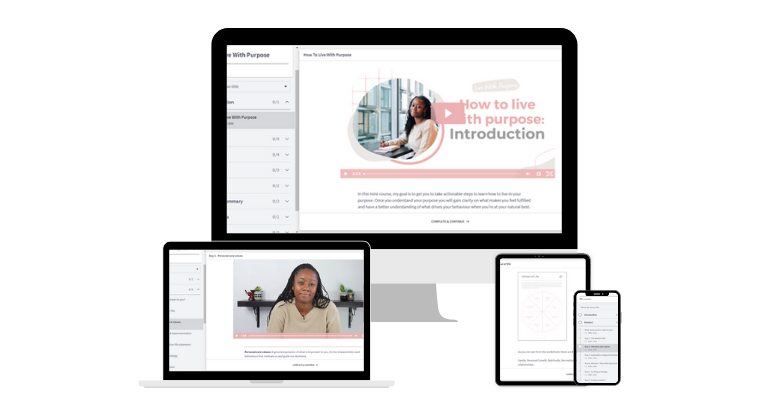
4. Allowing yourself to procrastinate
Procrastination is one of the hardest things to say “No” to. It’s easy to get caught up in the planning of something rather than the execution. Without execution, your idea will remain as an idea.
No amount of wishing, manifestation or praying is going to make your dreams fall in your lap.
Procrastination is the root of unachieved dreams. The sense that there’s enough time to get things done can be deceptive, it can be the difference between celebrated success and failed goals.
Procrastination is not only delaying tasks but by doing things that are not a priority on your list and not using your time productively by spending your energy and efforts on tasks that are neither making you progress on your goals or making you happy.
Strictly say “No” to distractions and time killers.
5. Negative self-talk
Negative self-talk has many forms and can affect us in some pretty damaging ways. It can sound grounded (“I don’t think I’ll be good at this so I should avoid doing it to protect my own safety”) or it can sound terrible (“No matter what I do, it’s never right”).
Negative self-talk is any inner dialogue you have with yourself that may be limiting your ability to believe in yourself and your abilities. Not only can negative self-talk distort how you see yourself, but it can also stunt your personal growth.
Ways on minimising self-talk:
👉 Stop the thoughts in its tracks
Be mindful when you’re thinking negative thoughts. Imagine a stop sign in your mind or verbally say “stop” to yourself and change your thought pattern to a positive one.
👉 Cross-examine what you’re saying to yourself
When you catch yourself talking negative, ask yourself “how true is this?”. The majority of negative self-talk is an exaggeration and calling yourself out on it can help take away the damaging influence.
👉 Stop expecting perfection
Nobody is perfect, so expecting perfection when you’re just starting out on a new project or thinking that you’re exempt from failure is only going to set you up for a definite fall. Flaws and failure are a part of life and once you move forward in spite of them you will become happier and more self-confident.

6. Burning yourself out
You’re no use to yourself or anybody else when you’re completely shattered. Being burnt out results in low productivity levels, poor work quality and crankiness. It just becomes one bad thing after another if you continue to ignore your mind and body when it screams for rest. There’s no benefit to working that much.
You usually end up getting burnt out by saying yes to extra work that you really don’t have time for. You should see breaks as a necessity not expendable time to do extra work.
Figure out how much you can say yes to on a daily and monthly basis and figure out how much time to set aside for breaks. (E.g. will you take a 15-minute break every 60 minutes or 90 minutes?) Say No without hesitation to any work that will interfere with your allotted break time.
In summary
Saying “Yes” as well as saying “No” to the right things is a skill that everyone has to master. Give yourself permission to say “No” without having to explain yourself.
You won’t be able to relive this life again so make the most of the time you’ve got now and spend it doing the things you love as well as helping others.
Well, this was my list of things to say “No” to for your to live a happier life. 🤗
I hope these ideas will inspire you to create your own list and start implementing it straight away.
What do you want to say “No” to for a happier and simpler life this year?
Pin this post for a reminder 📌 👇

Related Blogs
The ultimate guide for coping with change
Did you know that people on my email list sometimes get exclusive discounts on my products? Join the community and save yourself some coins!
Freshly-squeezed inspiration, and no-nonsense tips + tricks to improve your life delivered to your inbox weekly.
Subscribe to my newsletter
Subscribe
You're all signed up!
Be sure to whitelist our email address so that all the goodies make it to your inbox.



